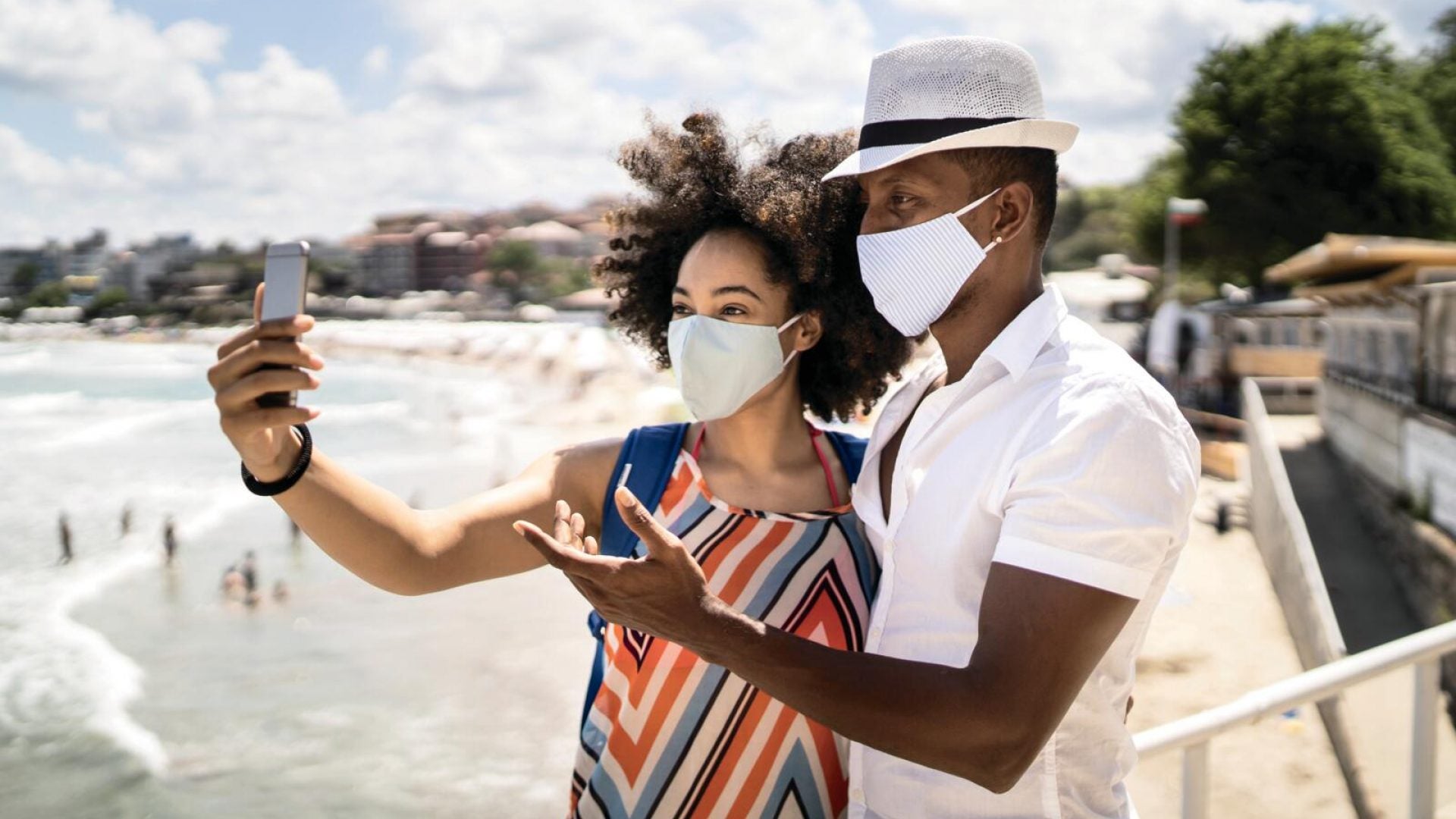
The COVID-19 pandemic has changed the way we live, and now “traveling safely” has a whole new meaning. There’s a lot more to think about before you plan your itinerary, and listening to the experts is key. Before you go trippin’, Leandris Liburd, Ph.D., associate director for the Office of Minority Health and Health Equity at the CDC, shares the agency’s best travel practices, as of press time. Liburd is fully vaccinated and is planning to visit Virginia Beach this summer. Here, she breaks down the answers to your biggest travel questions.
Is it safe to travel right now?
Get fully vaccinated! If you are, you can go anywhere within the United States. COVID-19 vaccines are safe and effective, and folks who are fully vaccinated are less likely to get and spread COVID-19 to others—so it’s especially important to get your shots before you plan a trip. If you’re not fully vaccinated, delay your travel.
What about taking an international trip?
Even for the fully vaccinated, venturing overseas still poses additional risks. The severity of the COVID-19 pandemic, including the spread of new or troubling variants, differs from country to country, so even fully vaccinated people need to be aware of the prevailing conditions at their destination before booking. In short: People who are not fully vaccinated should not take an international trip.
Can we talk vaccine, quarantine and testing requirements?
Fully vaccinated people can travel within the U.S. without pre-trip testing or post-travel self-quarantine. For those who aren’t fully vaccinated, the recommendation for domestic travel is to get tested 1 to 3 days before your trip, and again 3 to 5 days after you return home. You’ll need to self-quarantine for 7 days after travel, or for 10 days if you don’t get tested. Always pay close attention to the current situation at your proposed destination and then follow their testing and quarantine requirements. All travelers, including those who are fully vaccinated, are required to present a negative test or show documentation of recovery from COVID-19 before flying back to the U.S. from another country. And they should still get tested after -travel. Fully vaccinated people do not have to get -tested before departing the U.S., unless their destination requires it, and do not need to self-quarantine after returning from abroad. However, they should self-monitor for COVID-19 symptoms, get tested 3 to 5 days after travel, and follow all state and local recommendations or requirements after international travel.
Which COVID tests are acceptable for traveling requirements?
Travelers should get a viral test that can identify a current infection. Contact health care providers, or visit state, tribal, local and territorial health departments’ websites to find the latest information on testing in their area.
What’s the deal on “COVID passports”?
Currently, the best record of your COVID-19-vaccine status in the U.S. is your CDC-labeled white vaccination-record card.
This article originally appears in the July/August 2021 issue of ESSENCE, on stands now!





